There is No God in that Temple
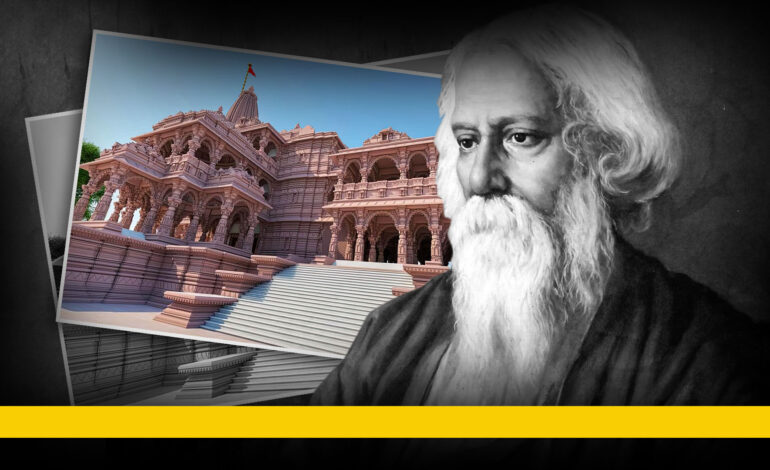
As preparations are in full swing in Ayodhya for the consecration of the Ram Temple on January 22, 2024, a poem written by Rabindranath Tagore in 1900 is getting circulated widely across social media platforms. This iconic poem, in very many ways, reflects the controversies that have come up with regard to the consecration, including the function’s boycott by spiritual leaders such as the Shankaracharyas. The poem was originally written in Bangla with the title ‘Deeno Daan’ (‘Destitute Donation’). The AIDEM is reproducing the poem’s Translation in English and Tamil along with. The Tamil translation is by R Vijaya Sankar, Group Editor of The AIDEM.
There is No God in that Temple, A Poem by Rabindranath Tagore
“There is no god in that temple”, said the Saint.
The King was enraged;
“No God? Oh Saint, aren’t you speaking like an atheist?
On that throne studded with priceless gems, beams the golden idol,
And yet, you proclaim that it is empty?”
“It is not empty; rather, it is full of royal pride.
You have bestowed yourself, oh King, not the God of this world”,
Remarked the saint.
The King frowned, “2 million golden coins
were showered on that grand structure that kisses the sky,
I offered it to the Gods after performing all the necessary rituals,
And you dare claim that in such a grand temple,
There is no presence of God”?
The Saint calmly replied
“In the very year in which twenty million of your subjects were struck by a terrible drought;
The desperate masses without any food or shelter,
came begging at your door crying for help, only to be turned away,
they were forced to take refuge in forests, caves, camping under roadside foliages, derelict old temples;
and in that very year,
when you spent 2 million gold coins to build that grand temple of yours,
that was the day when God pronounced:
‘My eternal home is lit by everlasting lamps,
in the midst of an azure sky.
In my home the foundations are built with the values
of Truth, Peace, Compassion and Love.
This poverty-stricken puny miser,
Who could not provide shelter to his own homeless subjects,
Does he really fancy he can give Me a home?’
That is the day God left that Temple of yours.
And joined the poor beside the roads, under the trees.
Like the emptiness of the froth in the vast seas,
Your mundane temple is hollow.
It is just a bubble of wealth and pride.”
The enraged King howled,
“oh you sham cretin of a person,
Leave my kingdom this instant”.
The Saint replied calmly,
“To the very place to which you have exiled the Divine,
Banish now the devout too”.
To receive updates on detailed analysis and in-depth interviews from The AIDEM, join our WhatsApp group. Click Here. To subscribe to us on YouTube, Click Here.


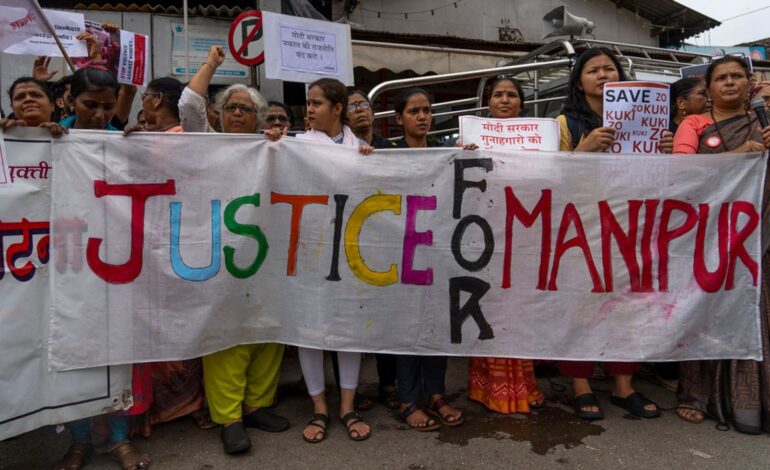
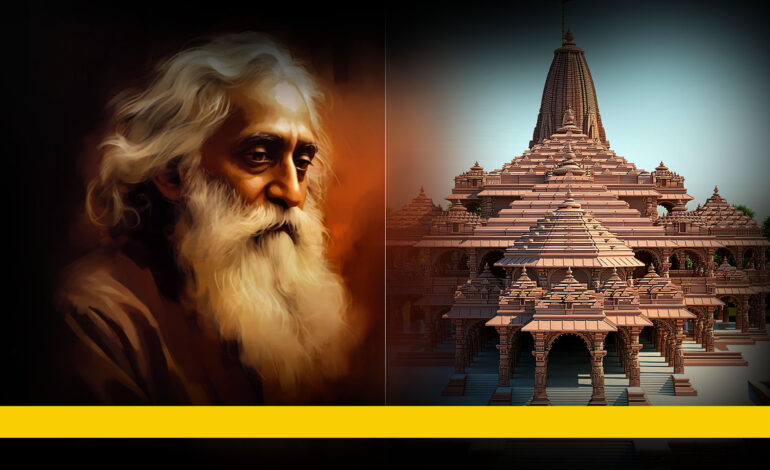
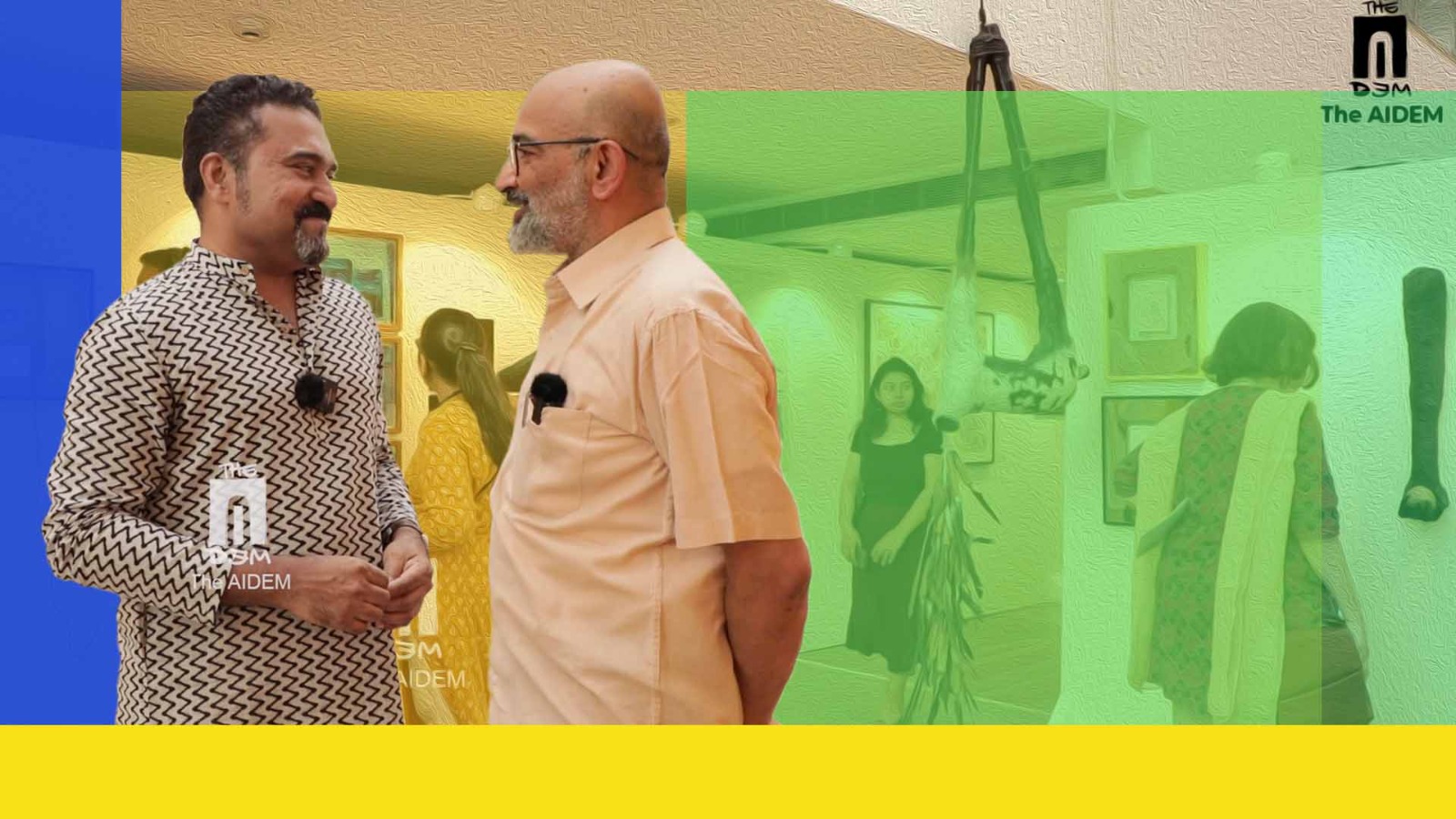
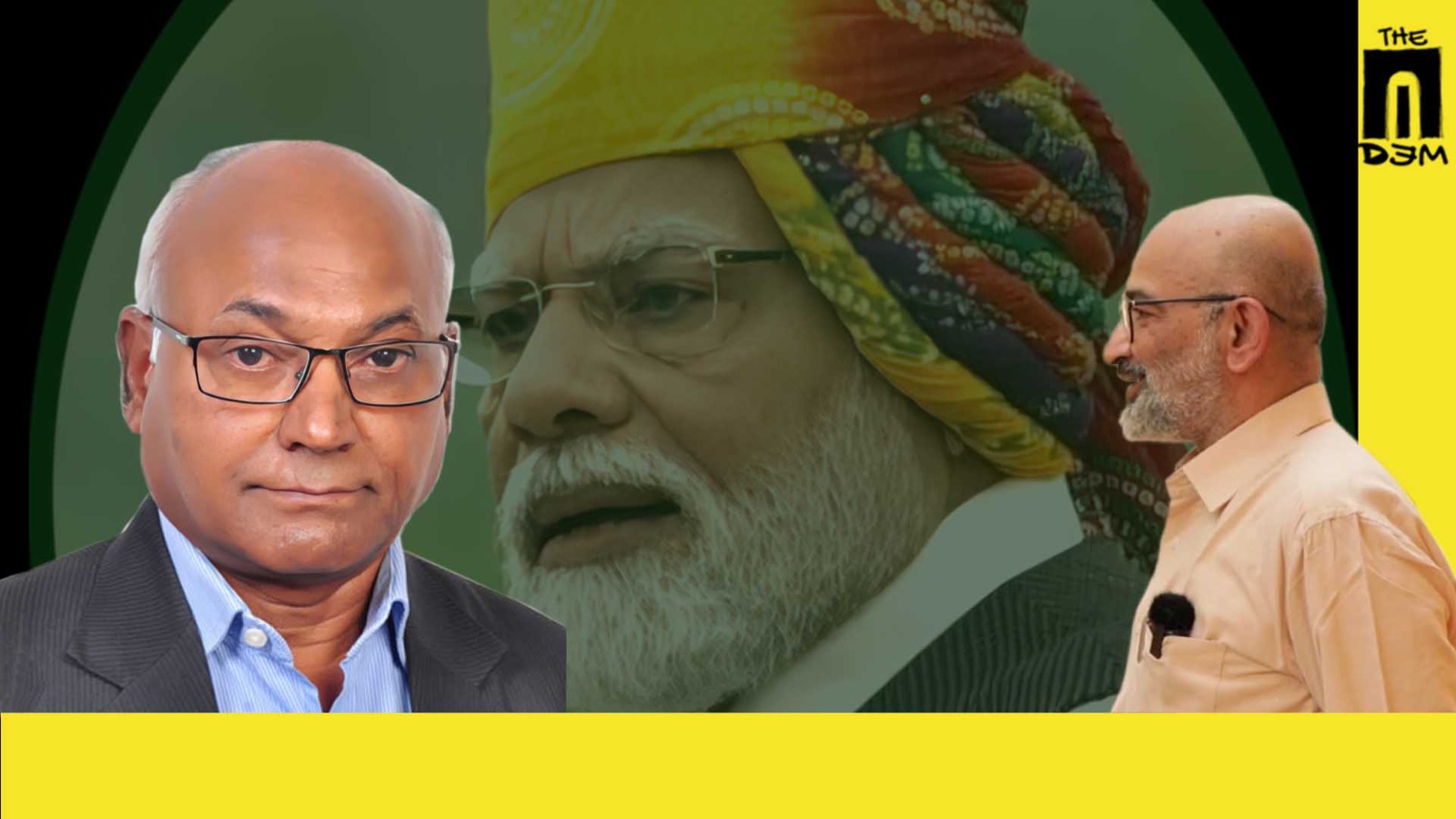




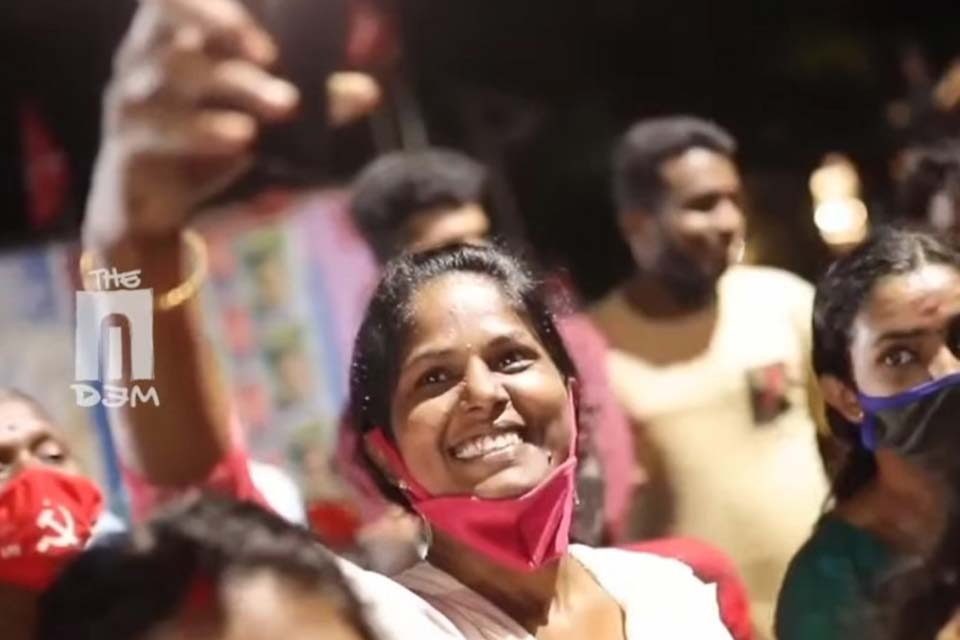

I can see a number of people have disliked this poem… I wonder, in what sense they did it so?
The poem is very good , emotions expressed/placed most nicely . Establishes the right view.
But the converse is not always TRUE. The king may have to justify expenditure involved in decorating the idol and ignoring the poor people.
But is it always unjustified ? No !
Being possessed with administrators point of view , another poem can be written justifying the expenditure.
If it is in context of Ram mandir in Ayodhya ,
— A long lost self respect has been restored ,
— Even poor people have donated according to their ability , out of joy and great appeal of Lord Ram ,
Financial–
— It has given a great makeover to Ayoghya , and the process has provided temporary as well permanent Employment to a large no. of people there ,
— Ayodhya being developed as major tourism hub , will further generate more employment .
Economics — I do no subscribe to the idea that distributing money to the poor will alleviate their poverty. Mere eyewash .
Providing them Employment is the real help.
As mentioned in the beginning , the grandeur was required to soothe the hurt feelings of the common people(done using subscriptions from people , not the raja or govt. ) and
–to restore the pride of the nation,
— to generate revenue and Employment.
— the grandeur was
Poems focus on a part of the scenario . Usually do not provide a solution.
When many are killed in the name of religion does the ends justify the means in any country. God dwells in hearts and souls not in buildings however lavish.
I suppose you are speaking for Babur and his associates who plundered the whole area in 1558 just because there was a temple standing there,looted every possessions and build a mosque right over there to prove his supremacy and shatter beliefs of people,OR are you talking about those hundred men who were killed by the police because they were protesting against a foreign structure in their place of worship?Either way ,these were things of past .At present,the one thing that has revived is the trust on “Truth pervades”,God and the battle many people from many parts of the country has taken part in.However,if you’re talking about death ,yes there is a certain sect of people who have been posting death threats online born on sheer idea of ‘eradication of kafirs’.
Coming to the poem ,kabiguru brilliantly showcased the duty/dharma of a king vs his personal ideals/beliefs. But in the case of Ram Mandir , duty of a prime minister was to fulfill what his subjects have been fighting for the last 500 years.Even if his personal belief coincided with his people,he waited till it was verified by ASI and the courts.Hindus build the temple by their donations and reclaimed it ,I don’t understand what’s the fuss about it.
Talking about geopolitical influence of the temple,people all around ayodhya and up will be benefitted ,in few years it will develop into a top religious tourism destination.Such an initiative is also crucial for increasing net worth of the country.
Correct.about ten crore Hindus have been massacred in the last thousand years ,in the name of religion,by the people who are followers of a book that commanded them to kill all those who are infidels
I endorse every word of your comment. How long and how much money be contributed to the so called poor? One should work and earn their food. The government and the Hindu society are already contributing lots of freebies and money, thanks to thebenevolent people and tax payers. It seems this author of aidem wants us to keep feeding every lazy soul.
True words Madam
Truly rational explanation. The poem is relevant but should be analysed in the right context . One can also recollect another poem by Tagore, “where the mind is without fear…” This could be related to the courage of the people of India to reclaim their heritage irrespective of their later cultural and religious conversions. Those who can perceive the significance with tolerance and acceptance of the historical facts and put things in the right perspective without bias or personal prejudices, would rise above the mundane and the petty.
The poem was wrongly used. RAM MANDIR is not funded by govt., but by people, top rich to poorest redhiwala. Hence, it’s nowhere the showoff by any ruler.
Secondly, the original temple was ruined by Babur and Mir Baki to make Masjid over the Mandir! It’s shame that still some stupids are crying.
“Svadharme nidhanam shreyo, Paradharmo bhayavahah.”.
God was banished, disobeyed, dishonoured the day human love, morals, values, empathy, sympathy compassion, sharing, human to human discrimination made home in our heart and soul
Thus we made us and God a stone real God left the confines of temples
And went to live in mosque,you mean?
The sultans of Delhi used to try to demolish the Ram mandir that had been renovated (original temple was much older) by Vikramaditya of Ujjain. But the Hindus kept valiantly fighting, dying and protecting the temple. After the Lodi Dynasty, the Mughal dynasty began in 1526 with Babar as the first king. He issued a farman in 1527 for demolishing the temple. In 1528 he sent a huge army headed by Mir Baki to attack and kill Hindus of Ayodhya and demolish the temple.
According to the Lucknow Gazetteer that records the history of Ram mandir, 1.74 lakh Hindus were massacred by Mir Baki and his army and then he managed to demolish the temple. Babari masjid was then constructed.
The peace-loving and law-abiding Hindus, after waiting patiently for centuries, have now been able to have the ancient temple back and to have the lost glory of Ayodhya restored.
Complaining against the inauguration of the temple is a huge insult to the lakhs who laid down their lives for protection of righteousness against terrorists who killed only because others didn’t think the way they did.
Such complainants are overtly or covertly supporters of terrorists.